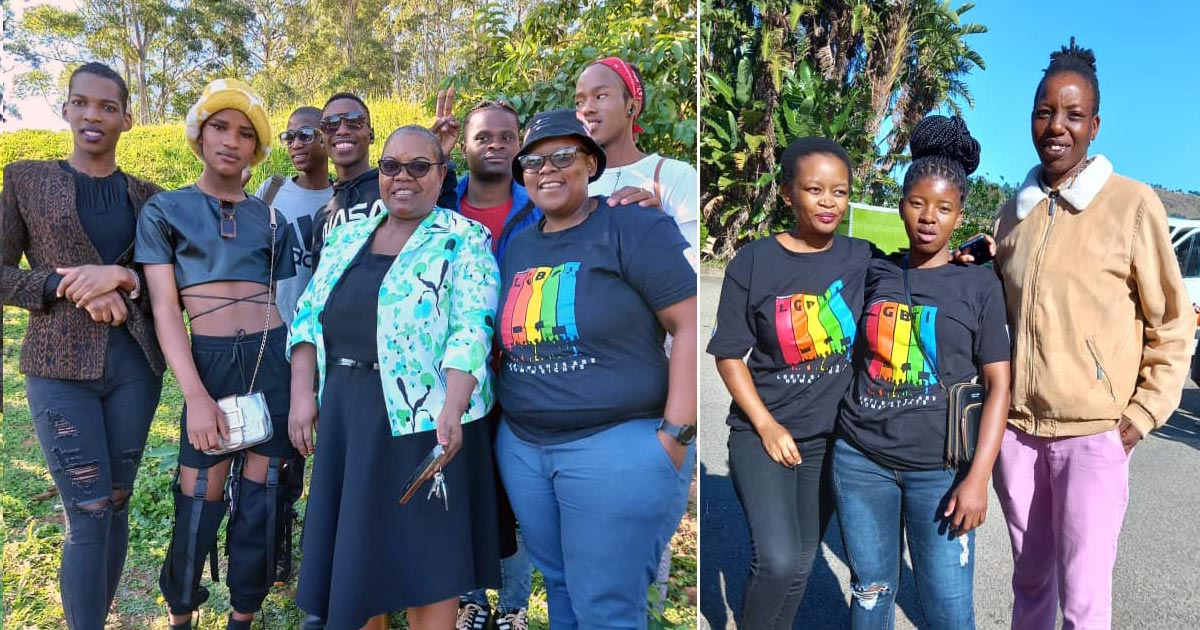Eswatini Supreme Court hears LGBTIQ+ group’s registration case

Members of the LGBTIQ+ community and allies came out to support the ESGM registration hearing at the Eswatini Supreme Court on Friday (Photo: ESGM/Twitter)
The Eswatini Supreme Court has been asked to compel the Southern African kingdom’s government to register an LGBTIQ+ rights organisation as a not-for-profit company.
On Friday, the court heard arguments in the case challenging the refusal by Eswatini’s Registrar of Companies to register Eswatini Sexual and Gender Minorities (ESGM), a group that advocates for the rights of LGBTIQ+ people.
ESGM first applied for registration with the Registrar of Companies in September 2019. The registrar refused, claiming that ESGM’s objectives are unlawful because same-sex intimacy is illegal in the country.
Although not actively enforced, men “suspected” of sodomy can be arrested in Eswatini without a warrant under the Criminal Procedures Act of 1938.
In April last year, the Eswatini High Court denied ESGM the right to be legally registered by the government. The organisation, supported by the Southern Africa Litigation Centre (SALC), appealed the ruling to the Supreme Court.
SALC reports that the state repeated its argument to the Supreme Court that the registrar cannot register ESGM because same-sex sexual acts are illegal in the country, thereby making the LGBTIQ+ organisation illegal.
ESGM countered that the criminalisation of homosexual acts does not mean that identifying as LGBTIQ+ per se is illegal. It also does not invalidate LGBTIQ+ individuals’ rights to dignity, free association and to advocate for legislative or policy change.
The Presiding Justice, Dlamini JA, pointed out that an organisation of former prisoners who’d previously broken the law had been allowed to register and asked why this was being denied to LGBTIQ+ people. It was also noted that Pride events had been held since 2018 in Eswatini without participants being arrested.
ESGM urged the court to consider in its deliberations the landmark 2016 Botswana Court of Appeal ruling ordering that country’s government to register the group Gays and Bisexuals of Botswana (LEGABIBO).
Eswatini is one of the world’s last remaining absolute monarchies. The government has violently clamped down on pro-democracy protests in the recent past. It also temporarily shut down the internet in a bid to stifle dissent.
Judgement in the case was reserved for a date to be advised.
Today the #SupremeCourt of #eSwatini will hear an appeal brought by @EMinorities challenging a 2022 High Court judgement the hat dismissed the applied for review of the @EswatiniGovern1’s refusal to register the organisation. pic.twitter.com/j0YD2sNgWM
— SALC (@Follow_SALC) May 5, 2023
Leave a Reply